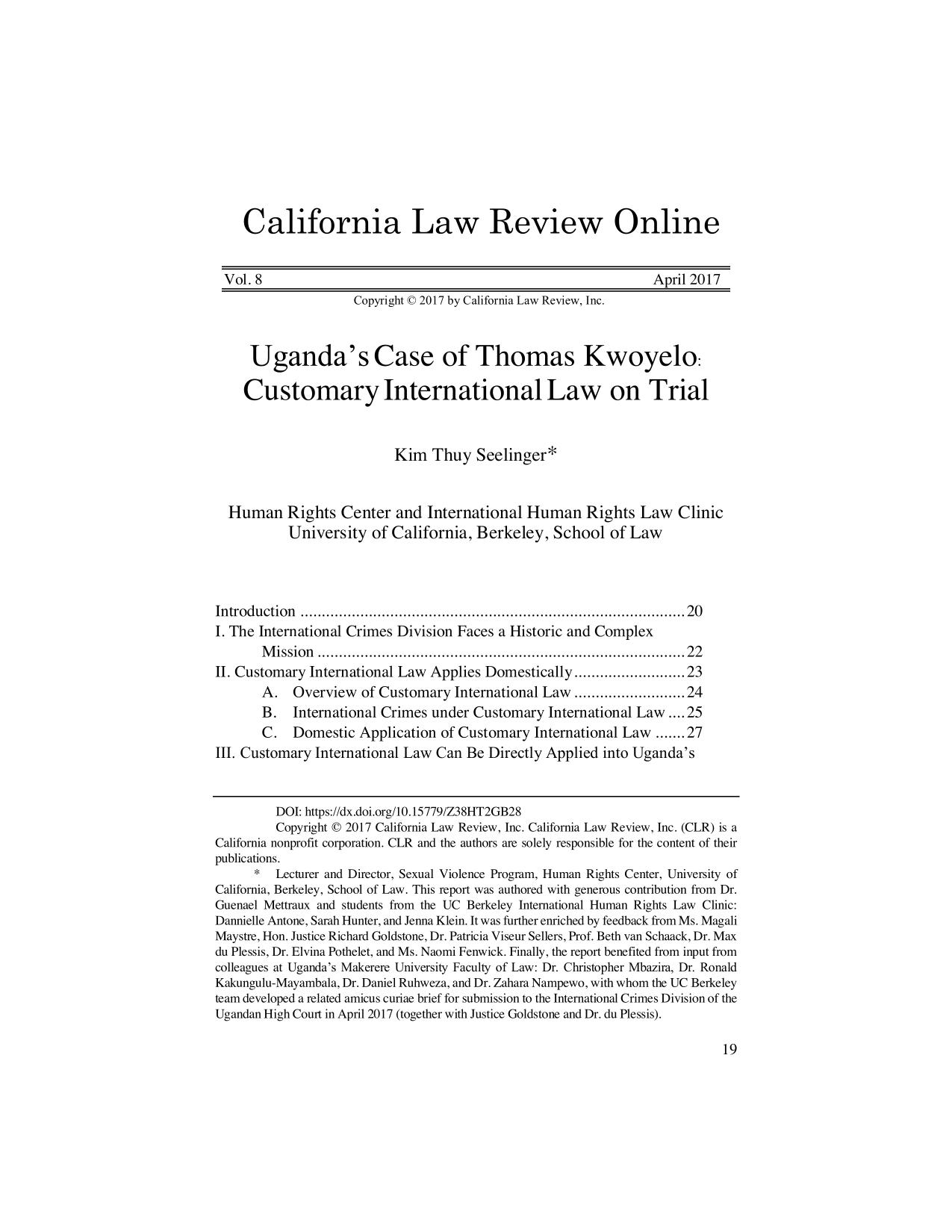Uganda’s Case of Thomas Kwoyelo: Customary International Law on Trial
Download PDFSummary
From 1987 to 2008, an armed conflict seized Northern Uganda, as the Lord’s Resistance Army (LRA) challenged the Ugandan government in a contest that resulted in more than 100,000 dead3 and over 1.9 million people displaced. Since then, both the Ugandan government and the international community have invested significant effort in apprehending LRA leaders for prosecution for war crimes and crimes against humanity. The most widely followed efforts have included a protracted hunt for the group’s enigmatic leader, Joseph Kony, and the long-awaited trial of Dominic Ongwen before the International Criminal Court (ICC). However, another critical case is quietly underway in Uganda’s own judicial system: the prosecution of a mid-level LRA commander, Thomas Kwoyelo, before the International Crimes Division (ICD) of the High Court of Uganda. After a long and controversial procedural background in which the Supreme Court of Uganda ultimately denied his eligibility for amnesty, Mr. Kwoyelo’s pre-trial process is finally expected to conclude in Kampala this week. Beginning May 9, 2017, the Honorable Susan Okalany will spend a week conducting what could be her final substantive task as pretrial judge: determining whether to confirm charges of war crimes and crimes against humanity brought on the basis of customary international law. This report introduces the International Crimes Division of the High Court of Uganda (ICD) and the case against Mr. Kwoyelo. It comes after a field mission to Kampala in March 2017 and the development of an amicus curiae brief drafted for submission to the ICD in April 2017. The report discusses the potential direct application of customary international law to domestic legal orders, even in “dualist” nations that traditionally require domestication of international law through explicit national legislation. Next, the report presents the view of international and Ugandan legal scholars applying for leave to appear as amici curiae in the case: the direct application of customary international law—even in the criminal context — is constitutional within the Ugandan legal order. They assert that the principle of legality is not compromised by the proposed charges as long as it is demonstrated that all charged offenses were established as crimes under customary international law at the time of alleged commission. The report then describes the current charges against Mr. Kwoyelo and demonstrates how specific crimes therein have constituted crimes under customary international law for decades. Finally, the report concludes with additional considerations raised by the trial of Thomas Kwoyelo and the legal framework challenges it has revealed.
